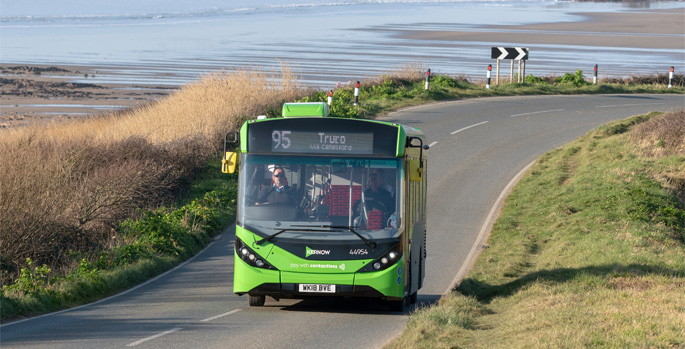The Department for Transport (DfT) faced the Public Accounts Committee over spending on bus services after the department was accused of failing to make improvements.
A report published at the end of last month by the National Audit Office, noted that £5.9bn has been spent by the department on the bus sector over the past five years, but concluded that despite this 'significant investment from government’, improvements to bus services for passengers ‘are not yet being achieved’.
Permanent secretary Jo Shanmugalingam, along with the director of buses and inclusion Stephen Fidler and director general of public transport and local group Conrad Baily, faced the committee at the House of Commons on behalf of the DfT.
When questioned on what actions the DfT were taking to tackle reductions in bus services, Ms Shanmugalingam highlighted the new Bus Services Bill, which she hoped would ‘improve and enhance partnerships, and make franchising easier for local transport authorities [LTAs]’.
She also stated that the department plans to use the Spending Review Settlement to provide ‘longer-term, simpler funding certainty’ for LTAs.
Mr Bailey added: ‘We have a very important role in the Department that we need to get better at and move towards, which is to enable and support the many local transport authorities and operators to share best practice.’
Ms Shanmugalingam pointed the finger at concessionary travel use when asked by the committee about the delayed recovery of bus use after COVID-19, saying that it was an area where the DfT was ‘seeing a real decline’.
However, no one was able to provide an answer to why that was, with Mr Bailey saying that they ‘do not fully understand why that is’, to which committee member Anna Dixon responded: ‘We cannot address the problem unless we know what the barriers are in terms of people’s motivations and behaviour change.’
Whilst Ms Shanmugalingam did try to highlight that efficiency of bus usage has increased, Ms Dixon pointed out that whilst that sounds positive, ‘if it is because so-called uncommercial routes and uncommercial times have been cut, then from the point of view of the customer it is not a good thing’.
Committee member Lloyd Hatton added: ‘Some people have seen a huge decline in the number of services, with bus services being fundamentally poorer, taking them to fewer places and being far less comprehensive.
‘I have whole villages, and bits of towns, where there was a bus five years ago and there is not a bus now. The bus does not exist, so why would you take the bus? How are we going to recover?’
The full report can be found here, with a transcript of the meeting available here.
Image credit: Peter Titmuss / Shutterstock.com






